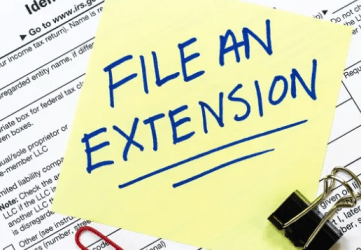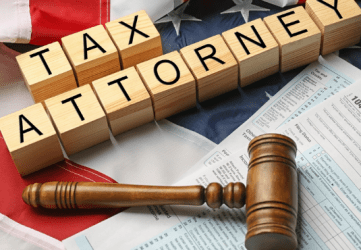As a 1099 contractor, organizing your data for tax time and managing quarterly estimated taxes can be a daunting task. Navigating the complexities of being an independent contractor requires meticulous planning and a clear understanding of your tax obligations. The Law Office of Jason Carr is here to help you with comprehensive tax planning and preparation services tailored to your needs. This article is sponsored by the tax professionals at the Law Office of Jason Carr. Contact the Law Office of Jason Carr. Call us at 888-661-6583 for assistance.
Organizing Data for Tax Time
Organizing your financial data is crucial for accurate tax reporting and to ensure you claim all eligible deductions. Here are some tips to help you stay organized:
- Maintain Detailed Records: Keep track of all income and expenses related to your contracting work. Use accounting software or spreadsheets to record transactions as they occur. This is particularly important for those working with services like DoorDash, UberEats, or other side hustle gigs.
- Separate Business and Personal Finances: Open a separate bank account for your business transactions to simplify tracking and avoid commingling funds.
- Save Receipts and Invoices: Keep digital or physical copies of all receipts and invoices. These documents are essential for substantiating your deductions.
- Track Mileage: If you use your vehicle for business purposes, maintain a mileage log to claim the standard mileage deduction.
- Organize Documents by Category: Sort your documents into categories such as income, expenses, and deductions. This will make it easier to find information during tax preparation.
Managing Quarterly Estimated Taxes
As a 1099 contractor, you are responsible for paying your taxes quarterly. Here’s how to manage your estimated tax payments effectively:
- Calculate Your Estimated Taxes: Use IRS Form 1040-ES to estimate your quarterly tax payments. This form helps you determine your expected income, deductions, and tax liability.
- Set Aside Funds: Regularly set aside a portion of your income for tax payments. A good rule of thumb is to save 25-30% of your income to cover federal, state, and self-employment taxes.
- Make Timely Payments: Pay your estimated taxes by the due dates (typically April 15, June 15, September 15, and January 15 of the following year). Missing these deadlines can result in penalties and interest.
- Adjust Payments as Needed: If your income fluctuates, adjust your estimated tax payments accordingly. Use the IRS’s online payment system for convenience.
- Keep Payment Records: Retain records of all tax payments made throughout the year. This information will be necessary when filing your annual tax return.
Independent Contractor Tax Considerations
Being an independent contractor comes with unique tax considerations. Here are some key points to keep in mind:
- Self-Employment Tax: As a 1099 contractor, you must pay self-employment tax, which covers Social Security and Medicare taxes. This is in addition to your federal and state income taxes.
- Business Deductions: You can deduct ordinary and necessary business expenses, such as office supplies, equipment, and home office expenses. Keeping accurate records is crucial for maximizing these deductions.
- Health Insurance Deduction: If you pay for your own health insurance, you may be able to deduct premiums paid for yourself, your spouse, and dependents.
- Retirement Contributions: Consider contributing to a retirement plan, such as a SEP-IRA or Solo 401(k), to reduce your taxable income and save for the future.
How the Law Office of Jason Carr Can Help
The Law Office of Jason Carr offers a range of services to assist 1099 contractors with tax planning and preparation:
- Tax Planning: Our tax professionals will help you develop a tax strategy tailored to your unique situation, ensuring you take advantage of all available deductions and credits.
- Tax Preparation: We provide comprehensive tax preparation services to ensure your returns are accurate and compliant with IRS regulations.
- Audit Representation: If you face an IRS audit, our experienced attorneys will represent you, helping to resolve any issues and protect your interests.
- Quarterly Tax Management: We assist with calculating and making timely estimated tax payments to avoid penalties and interest.
- Ongoing Support: Our team is available year-round to answer your tax questions and provide guidance as your business grows.
FAQs About Tax Planning for 1099 Contractors
What expenses can I deduct as a 1099 contractor?
You can deduct any ordinary and necessary business expenses, such as office supplies, equipment, home office expenses, and professional services. This includes expenses related to working with services like DoorDash and UberEats.
How do I calculate my quarterly estimated tax payments?
Use IRS Form 1040-ES to estimate your tax liability based on your expected income, deductions, and credits. This form provides worksheets to help you calculate your payments.
What happens if I miss a quarterly estimated tax payment?
Missing a payment can result in penalties and interest. It’s essential to make timely payments to avoid additional costs.
Can the Law Office of Jason Carr help me with my tax planning?
Yes, our experienced tax professionals offer comprehensive tax planning and preparation services to help you navigate the complexities of being a 1099 contractor.
For more information on managing your taxes as a 1099 contractor, visit the IRS website.
This article is sponsored by the tax professionals at the Law Office of Jason Carr. Contact the Law Office of Jason Carr. Call us at 888-661-6583 for assistance.






